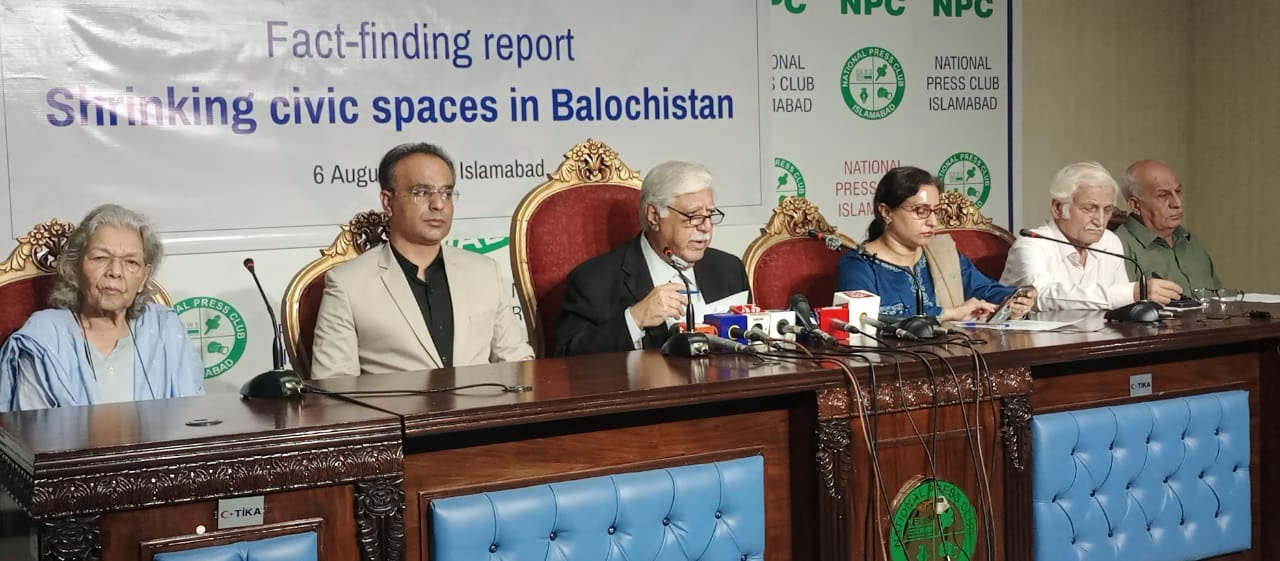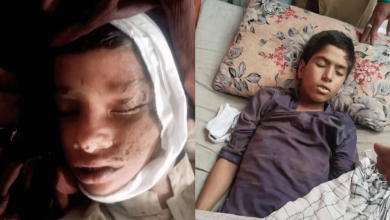HRCP raises alarm over human rights crisis in Balochistan
HRCP leaders addressed a news conference while unveiling the fact-finding report in Islamabad

Following a fact-finding mission to Balochistan, the Human Rights Commission of Pakistan (HRCP) has expressed serious concern about the human rights crisis in Balochistan.
The mission’s findings reveal a troubling pattern of continued enforced disappearances, a shrinking civic space, erosion of provincial autonomy, and unchecked impunity—conditions that fuel public alienation and political instability.
The HRCP chairperson, Asad Iqbal, Muniazy Jehangir and others addressed the conference at Islamabad Press Club.
The mission has observed that, while state representatives now acknowledge the existence of enforced disappearances, they do so within a security narrative that frames these incidents as a byproduct of insurgency.
This perspective risks normalising what international human rights law defines as a crime against humanity.
The report also calls for independent investigations into alleged reprisals against those who speak out against enforced disappearances.
The mission emphasises that while militant attacks targeting ordinary citizens, including non-Baloch settlers, are indefensible and must be prosecuted, the passage of the Anti-Terrorism (Balochistan Amendment) Act 2025 is deeply concerning.
This law allows for 90-day detentions without meaningful judicial oversight, raising alarms about the potential for torture and abuse. The mission urges the government to repeal the Act and ensure that all counter-terrorism efforts comply with Pakistan’s human rights obligations.
According to the report, electoral manipulation and the political sidelining of nationalist parties have severely undermined public trust in democratic processes.
The mission recommends that the state ensure transparency, fairness, and accountability in all electoral processes by investigating credible allegations of rigging and depoliticizing administrative structures to prevent further political disaffection.
The mission advocates for the demilitarization of civilian law enforcement and calls for the creation of a unified civilian police force with adequate resources and training in community-based, rights-compliant policing to replace the current over-reliance on paramilitary and military forces.
The report also highlights the de-legitimization of civil society movements like the Baloch Yakjehti Committee, noting that equating human rights advocacy with militancy only deepens alienation, especially among the youth. The state must publicly support human rights defenders and guarantee their protection.
The mission urges the government to reinstate constitutional protections in the 18th Amendment and respect provincial autonomy in natural resource management.
Controversial projects such as Saindak and recent amendments to the Balochistan Mines and Mineral Act must be revisited to ensure local consultation and equitable benefit-sharing.
Read also: HRCP report highlights alarming human rights decline across Pakistan
Unless the state urgently initiates a transparent, inclusive, and rights-based political solution, political and security conditions in Balochistan will continue to deteriorate.
Importantly, the mission warns that the risk of ethnic reprisals beyond the province is real and growing, threatening national cohesion. Therefore, it calls for principled leadership rather than further securitization.





